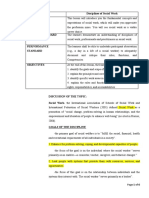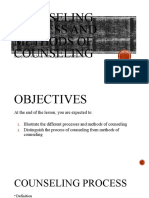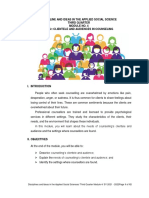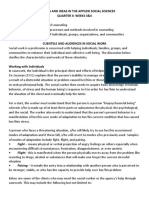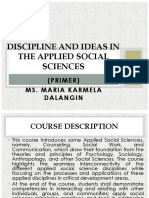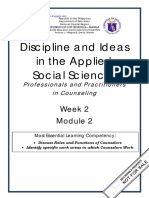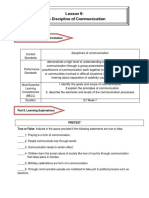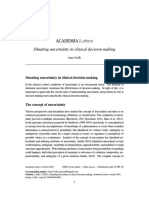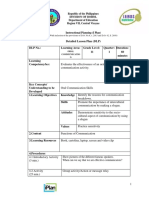0% found this document useful (0 votes)
2K views14 pagesSocial Work Essentials for Students
The document discusses social work as a profession focused on facilitating social relationships and adjusting individuals to their social environments. Social work aims to improve society's well-being, especially for vulnerable groups. The core roles of social workers include engaging with clients, assessing needs, planning interventions, implementing plans, monitoring progress, providing counseling, and facilitating natural support systems. Social workers act as brokers by connecting clients to resources, and advocates by fighting for clients' rights and access to services. The overall goal is to enhance social functioning and justice.
Uploaded by
JuanCarloProtacioCopyright
© © All Rights Reserved
We take content rights seriously. If you suspect this is your content, claim it here.
Available Formats
Download as PDF, TXT or read online on Scribd
0% found this document useful (0 votes)
2K views14 pagesSocial Work Essentials for Students
The document discusses social work as a profession focused on facilitating social relationships and adjusting individuals to their social environments. Social work aims to improve society's well-being, especially for vulnerable groups. The core roles of social workers include engaging with clients, assessing needs, planning interventions, implementing plans, monitoring progress, providing counseling, and facilitating natural support systems. Social workers act as brokers by connecting clients to resources, and advocates by fighting for clients' rights and access to services. The overall goal is to enhance social functioning and justice.
Uploaded by
JuanCarloProtacioCopyright
© © All Rights Reserved
We take content rights seriously. If you suspect this is your content, claim it here.
Available Formats
Download as PDF, TXT or read online on Scribd
/ 14
